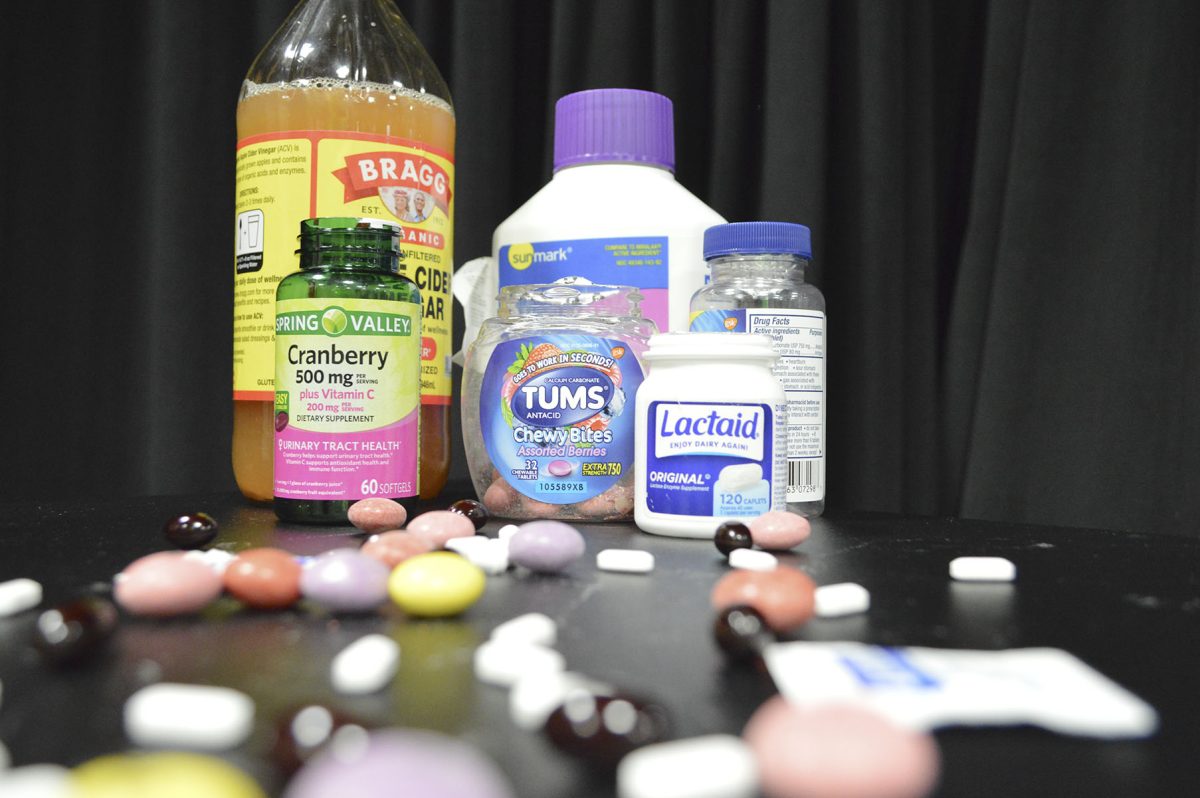A few years ago, as students were stuffing their faces with Oreos and Goldfish crackers, all the talk at lunch was about the toys they owned and the clothes hanging in their closets, and students weren’t thinking about what they were consuming. They’d pass around fidget spinners, wear galaxy-printed leggings, and proudly display collections of Hot Wheels or Barbie dolls. However, in recent years, students’ interests have taken a turn for the worse—today, one phrase resounds repetitively in any high school in the US: “my stomach hurts.” Instead of discussing their most recent addition to their Silly Bandz or Rainbow Loom collection, students now talk about how sick they feel after eating artificially flavored snacks or consuming sugary energy drinks. Unlike most other trends, recent research shows that this trend isn’t fleeting—stomach health among teenagers is on the decline, and the problem is here to stay.
For all Americans, gastrointestinal diseases are on the rise, but this issue has been significantly impacting younger generations. Research from the University of Cincinnati points to a recent increase in cases of colon cancer among young adults, a trend that caused medical offices around the country to lower the screening age for colon cancer to 45 years old from the previously accepted age of 50. Senior Zach Faust has firsthand experience with this recent rise in stomach issues among young people.
“I have stress-related stomach issues,” Faust said. “I have to be a lot more conscious about what I’m putting in my body, or when I’m entering more stress-prone environments.”
According to researchers from the National Library of Medicine, mental strain has been linked to negative effects on physical health and can cause what physicians call stress intolerance, an increase in physical symptoms in response to emotional struggles. Senior Delaney Heckman was diagnosed with stomach troubles when she was 10 years old.
“I’m lactose intolerant and have struggled with it since birth,” Heckman said. “I had to be fed soy formula as a baby.”
To help cope with her symptoms, Heckman takes Lactaid pills. However, she still has to be careful with what she eats.
“I used to not be able to have any dairy without [experiencing] pain, but [I] have started to build up a tolerance,” Heckman said. “Now, I can eat almost anything in moderation, but I still can’t drink milk.”
After struggling with stomach pain for four years, Faust has discovered one of the primary causes of his stomach irritation: overly-processed foods that have been stripped of their nutritional benefits. Processed foods are foods that have been altered from their original state in some way during preparation and packaging. Research from medical professionals at PIH Health, a nonprofit healthcare network, suggests that much of the inflammation from processed foods is caused by excess amounts of refined carbohydrates, as ultra-processed foods have little to no nutrients and are chemically processed to make customers crave them.
“Most of the time, name-brand foods are the worst when it comes to stomach issues, simply because they’re primarily concerned about taste and not about what is actually being digested,” Faust said. “But a lot of name brands have been working to make foods that can be consumed by people with dietary restrictions.”
Doctors at PIH point out that although not all processed foods are bad, cutting out some ultra-processed foods—such as cereal, mass-produced bakery items, and most energy bars and protein shakes—may improve a teen’s gut health and lessen stomach irritation. Beyond improved gastrointestinal health, lowering consumption of processed foods can also improve energy levels, skin health, and sleeping habits. However, since everyone’s gut reacts differently to various foods, teens can’t find a definitive answer to maintaining a healthy gut.
“It’s important to be conscious of what you put in your body, and figuring out what works for you is a great way to maintain being healthy,” Faust said. “With the developing food industry, finding accommodations for whatever diet fits your needs will become [easier].”
Annie Noble, a Registered Dietitian Nutritionist currently pursuing her doctorate in Health Sciences, claims that the “American Diet” is the underlying problem. She cites “energy-dense, nutrient-poor diets” as the main factor contributing to recent rises in stomach-related health conditions.
“Gastrointestinal problems, notably irritable bowel syndrome, gastroesophageal reflux disease, and gastrointestinal (GI) related cancers can be directly related to lifestyle habits,” Noble said. “Over the past few decades, it is no secret that humans, specifically Americans, have transitioned to a more high-stress, sedentary lifestyle and overconsume processed, energy-dense foods. This lifestyle has been modeled to youth, thus seeing an increase of GI issues.”
Although ignoring worrisome symptoms can be easier than confronting them, Noble urges those experiencing chronic stomach pain to seek medical help. She also warns against restrictive diets as a way to manage irritation or inflammation.
“GI allergies, intolerances and insufficiencies are difficult to diagnose because the GI system is complex and unique,” Noble said. “It is never advisable to ignore symptoms, but I highly recommend not attempting to self-diagnose and seek out a GI physician or dietitian that specializes in gastrointestinal issues.”
Despite the struggles that chronic stomach irritation causes, students like Faust and Heckman have learned how to manage their pain while still excelling in their daily activities.
“Stomach issues are real,” Heckman said. “People can be struggling without it controlling their life.”
Listen to Your Gut
The Best–and worst–foods for your health
Although not the sole cause of stomach issues, an unbalanced diet can lead to irritation and gut pain. According to the board-certified physicians at VeryWell Health, here are some of the best—and worst—foods for a healthy stomach.
BEST:
- High-fiber foods —> Eating foods with dietary fiber promotes digestion, lowers the risk of infection, and contributes to microbial diversity. Fiber has also been linked to a decreased risk of diseases such as type 2 diabetes and heart disease. Foods high in fiber include whole grains like oats and brown rice, nuts and seeds, and various types of beans.
- Fermented foods —> Fermented foods are beneficial for gut health, as they decrease inflammation and have a high nutritional value. However, temperature is important to keep in mind when consuming these foods, since too much heat can kill the beneficial probiotics created by fermentation. Examples of fermented foods include yogurt, kimchi, and sauerkraut.
- Polyphenols —> Polyphenols are rich in antioxidants and promote beneficial gut bacteria, making them helpful for improving stomach health. Fruits like blueberries and cherries, as well as dark chocolate and soy products, are high in polyphenols.
WORST:
- Ultra-processed foods —> Highly processed foods often contain excess amounts of salts, sugars, and fats, which negatively impacts gut health, as well as emulsifiers that can harm the stomach’s microbial diversity. Most foods contain some level of processing, but attempting to eat foods that are close to their natural state—such as an apple rather than apple juice or applesauce—can reduce the impact processing has on gut health. Examples of ultra-processed foods include breakfast cereals, deli meats, and most packaged snacks.
- Greasy, fried foods —> Fried foods are high in saturated fats, often causing irritation and heartburn due to their inability to be properly digested. Avoiding chips, burgers, and other greasy foods can lead to a happier stomach and better gut health.
- Artificially sweetened drinks —> Drinks can also have a negative impact on stomach health. Artificial sweeteners like aspartame, sucralose, and saccharin, which are typically found in sugary energy drinks, have a harmful effect on the diversity and balance of gut microbes. Drinks such as Diet Coke, Sprite Zero, and Diet Snapple contain high amounts of artificial sweeteners.












